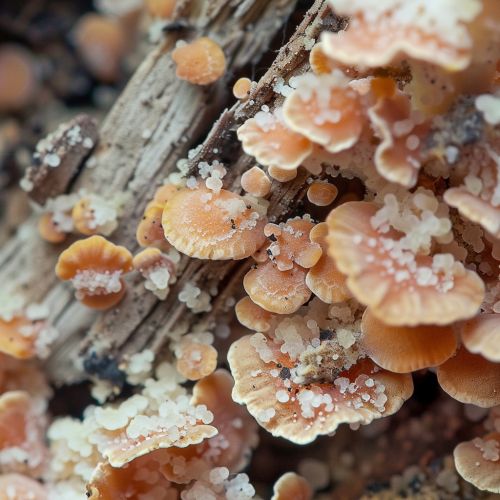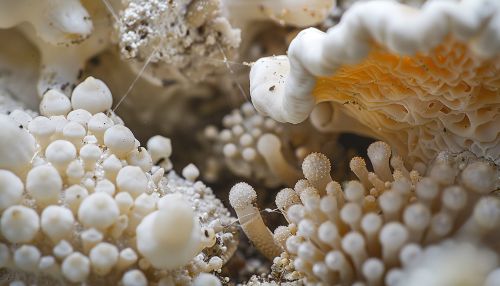Decomposer
Introduction
Decomposers are organisms that break down dead or decaying organisms, and in doing so, they carry out the natural process of decomposition. Like herbivores and predators, decomposers are heterotrophic, meaning that they use organic substrates to get their energy, carbon and nutrients for growth and development. While the terms decomposer and detritivore are often interchangeably used, detritivores ingest and digest dead matter internally, while decomposers directly absorb nutrients through chemical and biological processes.


Types of Decomposers
Decomposers are typically microbial organisms, which include bacteria, fungi, and some types of insects and worms. These organisms carry out the process of decomposition, which replenishes the supply of nutrients in the soil and is an integral part of the nutrient cycle.
Bacteria
Bacteria are unicellular organisms and a major group of decomposers. They break down materials by secreting enzymes that break down organic matter into simpler substances, which they then absorb. Bacteria play a crucial role in the nitrogen cycle, converting nitrogen in the atmosphere into forms that can be used by plants and animals.
Fungi
Fungi, like bacteria, are important decomposers in the ecosystem. They secrete enzymes that break down dead organic material into simpler compounds. Fungi are particularly important in decomposing woody plant material, which is resistant to decay due to the presence of lignin.
Insects and Worms
Certain insects and worms also contribute to the decomposition process. These organisms, known as detritivores, consume decaying organic material and excrete it as nutrient-rich waste, contributing to soil fertility.
Role in the Ecosystem
Decomposers play a crucial role in maintaining the health of an ecosystem. They are responsible for breaking down dead organic material and recycling it into the soil, where it can be used by plants to grow. This process, known as the nutrient cycle, is essential for the survival of all organisms in an ecosystem.
Decomposition Process
The decomposition process involves several stages. Initially, detritivores such as insects and worms begin to consume the organic material. They break it down into smaller pieces, making it more accessible to decomposers. Then, bacteria and fungi begin to break down the organic material at a molecular level, releasing nutrients back into the soil.
Factors Affecting Decomposition
Several factors can affect the rate of decomposition, including temperature, moisture, and the composition of the organic material. For example, materials high in nitrogen, such as grass clippings, decompose more quickly than materials high in carbon, such as woody branches.
Importance of Decomposers
Decomposers are essential for the health of the planet. They help to recycle nutrients, reduce waste, and contribute to soil fertility. Without decomposers, dead organic material would accumulate, leading to a buildup of waste and a depletion of nutrients in the soil.
